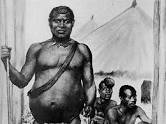
By Jonathan Maphenduka
THE English have such a good sense of humour. When they ask the man behind the bar for a Bloody Mary, they are served vodka and tomato juice, which turns the drink into the colour of blood. In other words, they are celebrating the burning alive of thousands of their kith and kin during the Reformation in the 1800s.
Queen Mary was the ruler of both England and Scotland when Protestants refused to become members of the Catholicism that had become the world’s dominant religion from Rome. At Smithfield, Queen Mary ordered the burning alive at the stake of over 300 men, women and their children. In Edinburgh outside the local cathedral another 18 000 Scotsmen, women and children were subjected to the same fate.
There were big names among them, such as John Knox, Tyndale, Rogers, Wesley, Ridley and Cramer who — when the going was hard — recanted his belief, but changed his mind and put the very fingers that had written the recantation to the fire first and they burnt until pieces dropped to the ground while he watched unmoved.
Cramer was head of the Church of England. Only the son of God endured that heart-rending pain.
In a county of Georgia there is a monument, The Georgia Guidelines, which calls for the reduction of the world population to 500 million “to give nature a chance”. The remaining people of the universe to be wiped out using nuclear weapons. The monument was built for a man who called himself Robert Christian whose real name remains a secret. He was so ashamed of himself he asked a friend not to divulge his real name.
However, the arms industry of superpowers is founded on that ghastly philosophy.
Have you ever wondered why there is so much turmoil and death as the world moves closer to the new world order in 2030, which promises to be a new world disorder instead? When my former newspaper published that notorious open letter to Melanie Robinson, the British ambassador to Zimbabwe, my daughter (displaying her ignorance about diplomacy) sent a text saying: “Dad, if they call you to the embassy, take a lawyer with you”! She had read the letter online from a neighbouring country.
- Chamisa under fire over US$120K donation
- Mavhunga puts DeMbare into Chibuku quarterfinals
- Pension funds bet on Cabora Bassa oilfields
- Councils defy govt fire tender directive
Keep Reading
Diplomats belong to a secret society of sorts and they don’t summon authors of silly open letters to their offices for an interview. The ambassador sits on a high chair passing judgement about how the history of colonialism should be interpreted. Diplomats don’t expose themselves to the public debate because they might be proved wrong. They prefer secret diplomacy.
Robinson is not from Scotland after all and she couldn’t understand why people should not be forced to abandon their conscience and recant their belief in the Word of God. It so happened that Reformation coincided with colonial expeditions to Central Africa. Mzilikazi signed the d’Urban Treaty of friendship with Great Britain in 1836 and Lobengula followed with the Moffat Treaty of 1888. There was also the Royal Charter of 1889, which purported to be an instrument of peace.
However, the necessity for all these friendship treaties has never been explained in the face of the invasion of Lobengula’s Kingdom by the British because he was accused of perfidy. Mere perfidy, a crime for which they committed genocide?
The colonists committed genocide in the Kingdom. When British explorers came to this country, they had an agenda to divide and rule the people of this country.
It started with the Jameson Line, which told the people that they were not the same people. But Mzilikazi or Lobengula did not require the chiefs of Mashonaland to pay homage to him or for them to become members of his kingdom’s chiefs’ council. The people outside his kingdom had their domain. They were just neighbours in charge of their own affairs. The kingdom was a superpower to force them to sign a peace treaty. When the two sides were not at war, but were just neighbours? In the kingdom’s judgement, the people of that territory were just neighbours.
But the people were told by the British that the Kingdom was enemy territory and swallowed that drivel. Something tragic happened in 1963 when African nationalism was sacrificed for tribalism. The proponents of tribalism created a lasting chasm of disunity in this country. There shall never be un-coerced unity among the people of this country.
This is because Robert Mugabe allowed himself to become a proxy for those who were responsible for what happened at Smithfield and Edinburgh. The British followed up in 1980 by sleeping with North Korea to train 5 Brigade to commit genocide in Matabeleland and Midlands. This strange bedfellow posture of the British government and North Koreans was designed to punish the people of Matabeleland by perpetually denying them the good of belonging to this country. This colonial agenda was applied through the policy of exclusion.
Can anyone ever take seriously the policy of a new dispensation except when it comes to compensation of the colonialist? This philosophy is bankrupt and has no lasting value.
All this because of the crime of Lobengula’s perfidy, which denied colonial Britain unchallenged entry into the Kingdom. The present administration has continued Mugabe’s time-honoured policy of exclusion for good measure despite the much-vaunted policy of a new dispensation. This policy will not allow restoration of the Matabele monarchy because Energy Mutodi says the people are mere “refugees”. I believe he talked out of turn about a friendly country and got himself fired. Good riddance.
There has been horrendous disinformation of the world about the character of the Matabele Kingdom, which was designed to show the kingdom as a villainous establishment to be destroyed in all its manifestations. That was the British version.
l Jonathan Maphenduka contact 0772 332 404











